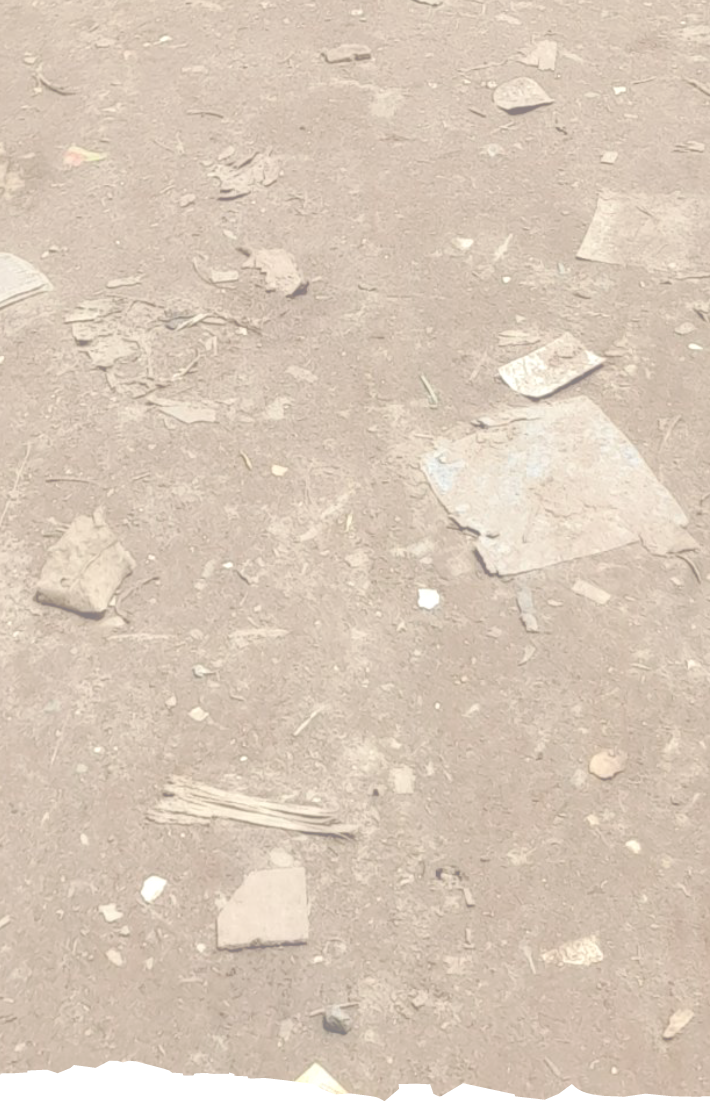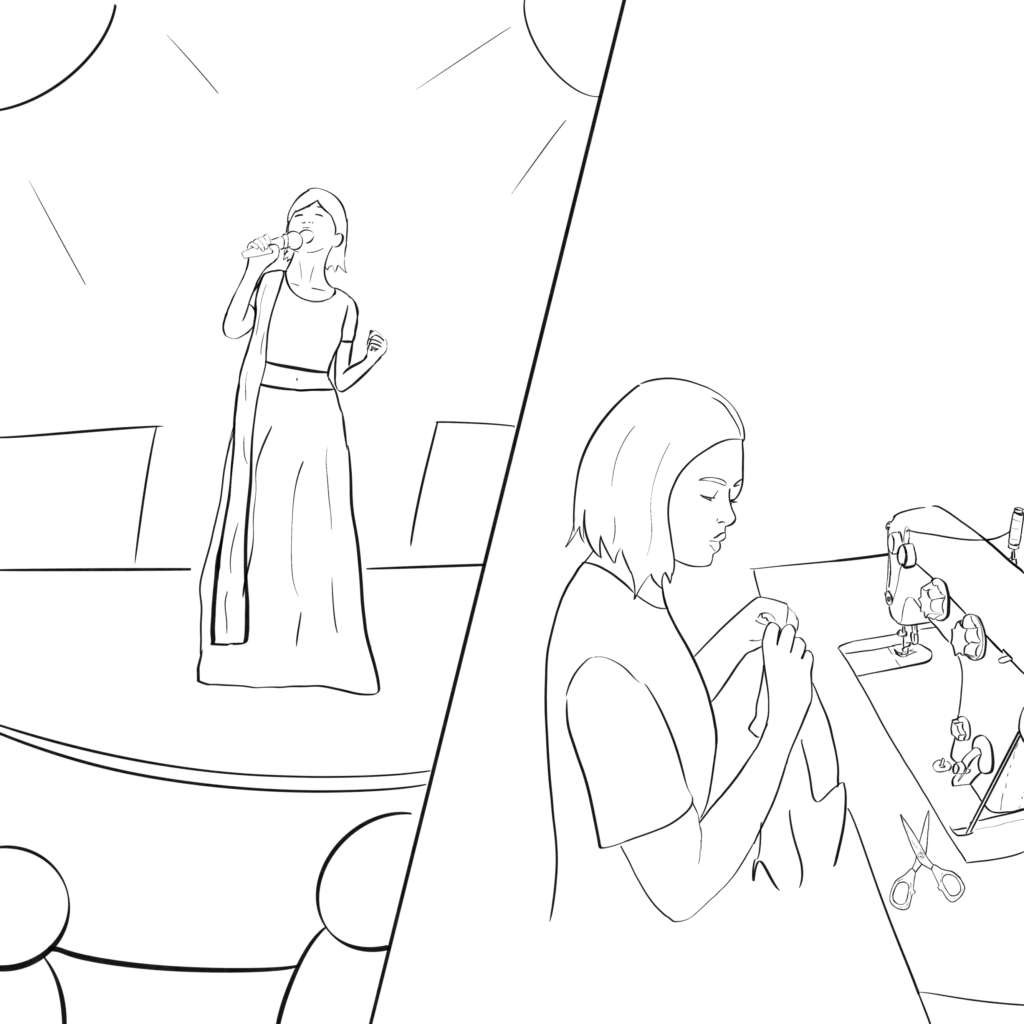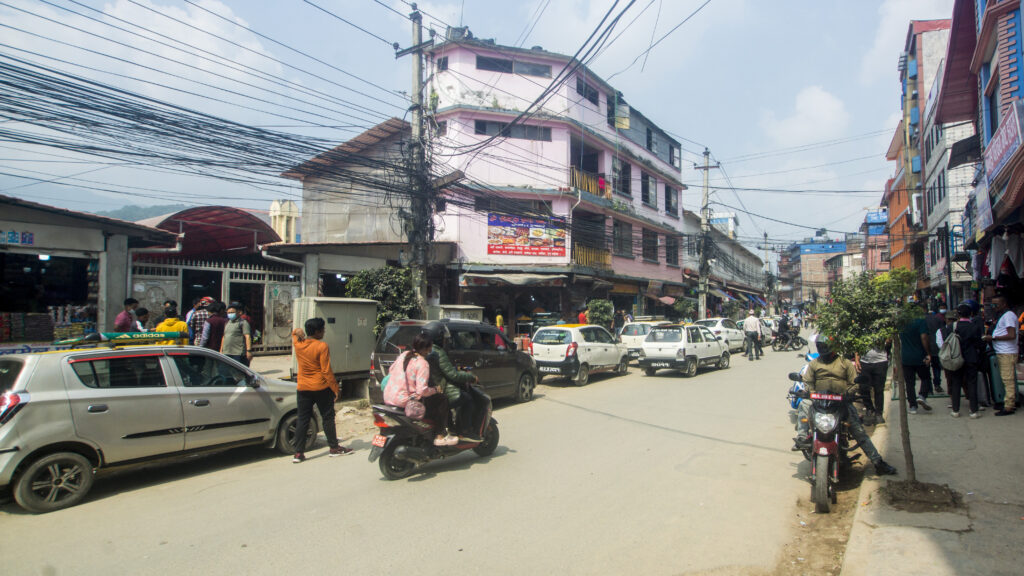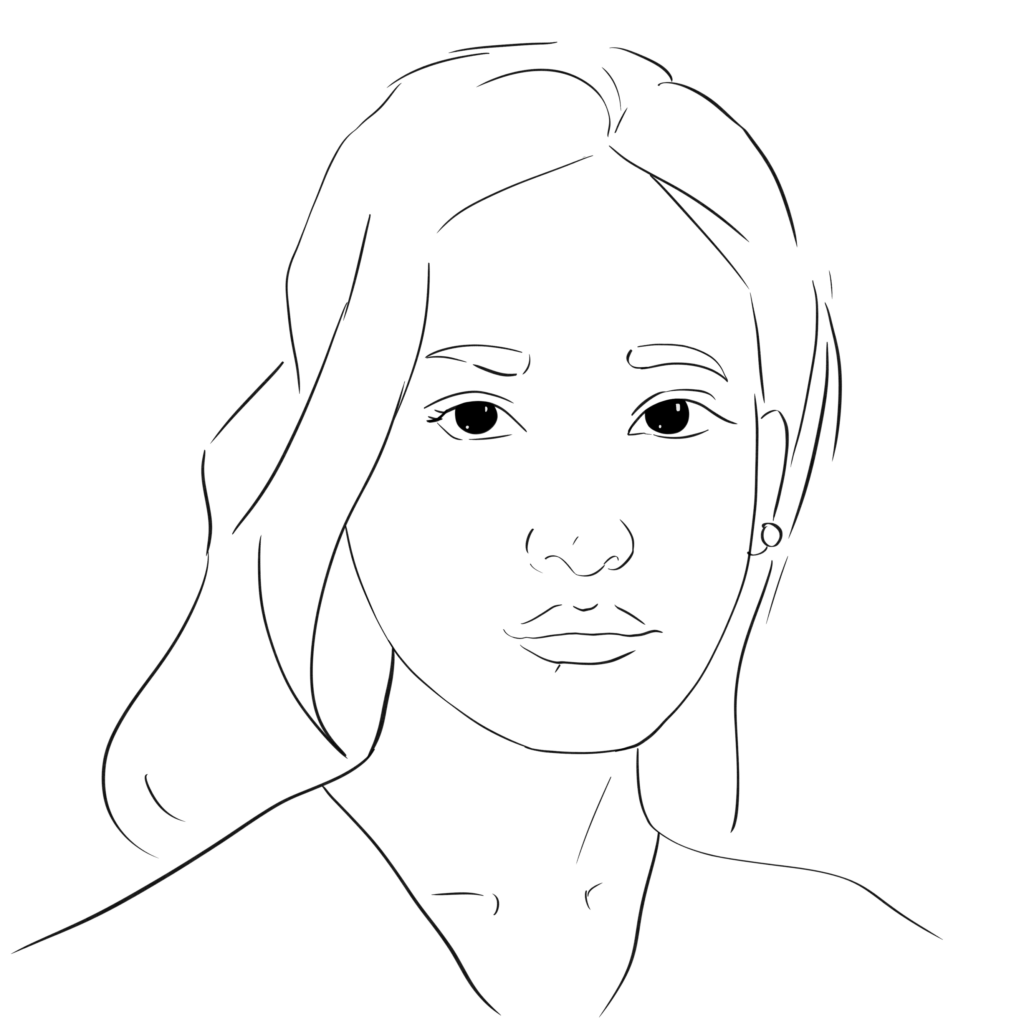

Preeti, 14 year old girl

About Preeti’s life
Preeti moved to Kathmandu a year ago. She lives alone in a rented room that includes a small kitchen. She is paying the rent herself.
Preeti moved from a rural village in the western part of Nepal. She has her sick father at home who needs her support. Preeti also has three sisters who are already married and a younger brother who she dotes upon. Preeti is responsible for all the education and personal expenses of her younger brother. Other than her family members, Preeti also calls a colleague who works with her at the Dohori her elder brother. Recently she suffered from kidney problems and was admitted to the hospital and during that time he took care of her, when she had nobody else in Kathmandu.
A few years ago, Preeti’s father went to a middle eastern country to earn money. After spending a few years there, he came back to Nepal, having not saved much money. The marriages of three of Preeti’s elder sisters also put a lot of burden on the family’s finances.

Preeti was recently in hospital

If I get off the stage, guests will ask me to sit with them. After that, the guests normally touch you. I feel very unsafe.

Hookah pipe
When Preeti’s father fell sick, the family spent much of its remaining savings. Therefore, Preeti felt she had no other option than to look for a job, even though she was just 13.
Preeti wants her younger brother to join the Indian army. Preeti feels that if she can achieve this, her brother will be able to support himself, and also look after their parents. At first, Preeti worked as a concert singer near her hometown. One day she met a woman who worked at a dohori in Kathmandu, who offered her a job there on the basis of her singing skills. Preeti readily accepted the offer. At first Preeti stayed with the woman for a few months and worked at the same dohori as her, but later left that job (because she wasn’t paid on time) and moved to a new one. Preeti also moved on from her friendship with the woman.
Preeti recorded her day and experiences on August 3, 2022. It was a typical day for her. Preeti doesn’t go out much, especially when there is no work, in order to save money. However, she is still quite busy these days as she has tailoring classes, and her work at the dohori.
Although Preeti feels safe at the workplace, the fact that she has to work even while she is sick makes her feel depressed. She suffered from pneumonia recently and was admitted to hospital. She was discharged after four days. After the discharge she felt pain, and an abscess was found on her kidney. Later on, when she was still in recovery, she became infected with dengue fever. Preeti still feels weak because of all these health issues. Unfortunately, whenever she felt a little better or could walk, she had to go to work, there was no rest for her just because she felt a little weak.
Preeti feels that if she has to list other troubles she faces in her day-to-day life, they would include travelling on public transport. She gets touched inappropriately on the bus when it is crowded. And it is crowded most of the time

Travelling on a crowded bus

A girl smoking a hookah pipe in a dohori
“I don’t like to flirt with the customers. I see them touching the waitresses.”

Preeti in her workplace
Currently Preeti is working at a dohori as a singer. She is also learning tailoring with support from a local NGO. Preeti earns around NPR 13,000 (US $98) a month. If she gets good tips this can go up to NPR 25,000 (US $188). Though she is making do with her earnings for now, she worries about the fact that the nature of her work is quite seasonal and in the rainy season, she doesn’t earn much. This makes her anxious at times. For now, though, she is satisfied with her work.
Preeti left school when she was 12. She now believes she won’t ever be continuing her education, as her work doesn’t allow her much free time.

Preeti’s day
Preeti’s experience
I came home at 3 am in the morning last night so I slept until 11 am this morning.. Waking up late is OK as I live alone. I cook my lunch after freshening up and having some tea. Cooking doesn’t take a lot of time as I cook only for myself. I also wash my clothes.
I really like my room as it is very quiet, and no one disturbs me. There is a grocery market nearby so I can easily get there if I need something. Today however I don’t go to the market as I already have vegetables from yesterday.
At around 1:30 pm I get ready to leave by bus for a local NGO where I am getting tailoring training.
Researcher’s experience
We reach Preeti’s home around 1 pm.

Travelling through the city

Preeti’s experience
I am not feeling comfortable on the bus because I can’t find an empty seat. I am standing up and my legs are aching. The bus is very crowded, and I am feeling very uncomfortable because of the smell of sweat and the close contact with the people standing near me.
Researcher’s experience
Preeti takes a bus to the NGO premises. Preeti at first decides to call for a pathao (motorbike ride share) but after seeing the fare she decides to travel on a public bus. She wants to save as much money as possible for her future.
Preeti’s experience
I feel at home here. My close friends are here as well. Nobody scolds me here and they are supportive of my work.
The tailoring training that I am getting is encouraging me to plan for a better future. I feel that my tailoring knowledge will stay with me until my old age, and it makes me happy thinking about that. I love learning here because the woman who teaches us is also very nice and treats us very well.
This is a place where I forget my stress and pain. Everyone is learning here. I don’t feel like my time is wasted. In our break we make chatpate (street snacks). I like being with everyone here. I stay until 4 pm.
Researcher’s experience
At 2:30 pm we arrive, and Preeti starts her tailoring training. Preeti finishes her training around 4 pm. She has learned how to make traditional baby clothes and is very happy.

Preeti’s experience
We wait for the bus for more than half an hour. We have to walk for five minutes to reach my room. Just as we get off the bus it starts to rain. I haven’t brought an umbrella with me, so I got wet.
Researcher’s experience
Preeti is anxious that she will be late for work if the bus comes late. She often has to skip the bus if it is too crowded.
Preeti tells us that she is also having counselling sessions at the NGO because she is suffering from stress. Pretti feels the sessions are helpful to her.
As Preeti becomes more comfortable with our presence, she opens up about her future plans. She is saving the money she earns from the dohori and is planning to open her own tailoring business when she has enough funds. Though she plans to do both jobs at first, when she is stable in her tailoring job, she will eventually leave her work at the dohori.
Preeti’s experience
I reach home around 6:15 pm. I make instant noodles for myself and my brother. I leave for work around 6:45 pm. I get dressed in my room.
Researcher’s experience
After we reach her home, she asks us to wait while she makes noodles and eggs for her brother and herself. Her brother lives across from her room and she cooks for him as he doesn’t have a cooking stove or gas in his room.
After cooking, she changes into an ethnic dress. She is looking very beautiful.

A neighbourhood scene

Preeti’s experience
I walk up to the dohori.
Researcher’s experience
The road is bustling. All the shops and night venues, like dohoris and dance bars and khaja ghars (small restaurants) are open. It takes us around 15 minutes on foot to reach Preeti’s workplace.

Preeti at work
Preeti’s experience
My duties at the dohori start at 7:30 pm and I work until 2 am in the morning. The dohori is bustling with people coming and going. I am a singer however, my work also requires that I also dance when needed. Being on the stage feels safe for me as guests can’t reach me here.
There is no power right now, so our stage performance hasn’t started just yet. It takes 15 minutes for the power to come back. Our performance starts after playing the national anthem. I will sing after my other singer colleagues finish their song.
Work at the dohori for me is quite safe. I think waitresses have more difficulties at the dohori because they have to come early, and they are also scolded by the guests if they make any mistakes. I like the fact that I am not forced to sit with the guests by the owner. All of my colleagues are good to me. What I don’t like though is when colleagues ask for money and take a lot of time to return it.
Later, I dance on the stage. I generally like dancing and singing so the work isn’t very burdensome for me.
Different people come to the dohori. Some are well behaved, and some are not. If I don’t go and flirt with them, most of the time no one approaches me with any bad intentions. Our owner is also female, so I feel lucky to be working here.
We have our dinner at the dohori around 11 pm. After dinner I get back to my work.
It is around 2 am in the morning when I finish.
Researcher’s experience
We reach Preeti’s workplace around 7 pm. People are coming in and out of the venue. There are many dohoris and dance bars and khaja ghars in this area. The common day-to-day problems that Preeti navigates are badly behaved guests, fights fuelled by alcohol, and guests leaving without paying their bills. Personally, though, these problems don’t affect her too much. Preeti attributes her lack of harassment from the guests to her boss being a female (who has also worked in this sector). She doesn’t force staff to get close to the customers and tells the customers not to misbehave with the staff. This aspect of the dohori has made it a safe space for all working there.

Preeti’s experience
Though the distance to my room is very short, I call for a pathao (motorbike taxi) ride because I feel safer on a bike rather than walking back at night. Sometimes a male colleague drops me and one of my other female colleagues home with the permission of the owner, but not tonight.
I used to work somewhere else, very far from here. So, I started working nearer my room because having my workplace nearby is a safer option for me.
The pathao comes a bit late, so I get on the bike around 2:10 am. The road is all quiet, apart from occasional movement around night venues just like ours. Dogs are barking occasionally on the street. The streets are well lit all around. I feel safe because this is my usual means of travel.
Preeti’s experience
I reach home around 2:20 am. I feel so much at ease after coming to my room as it is very quiet, completely different from the noisy dohori.
Usually, I sleep right after I get to my room. Today however, I am unable to sleep. It’s 3:40 am in the morning and I am still awake. I am on my mobile browsing social media and I don’t know when I will fall asleep today.





